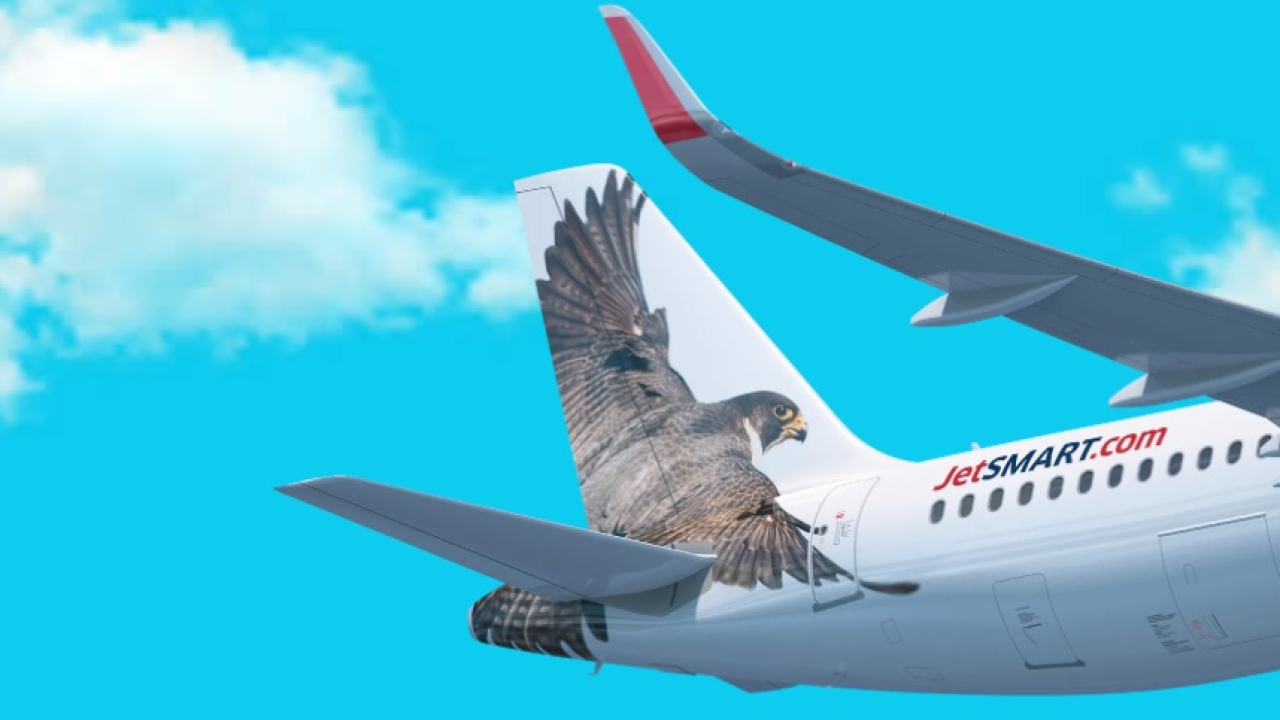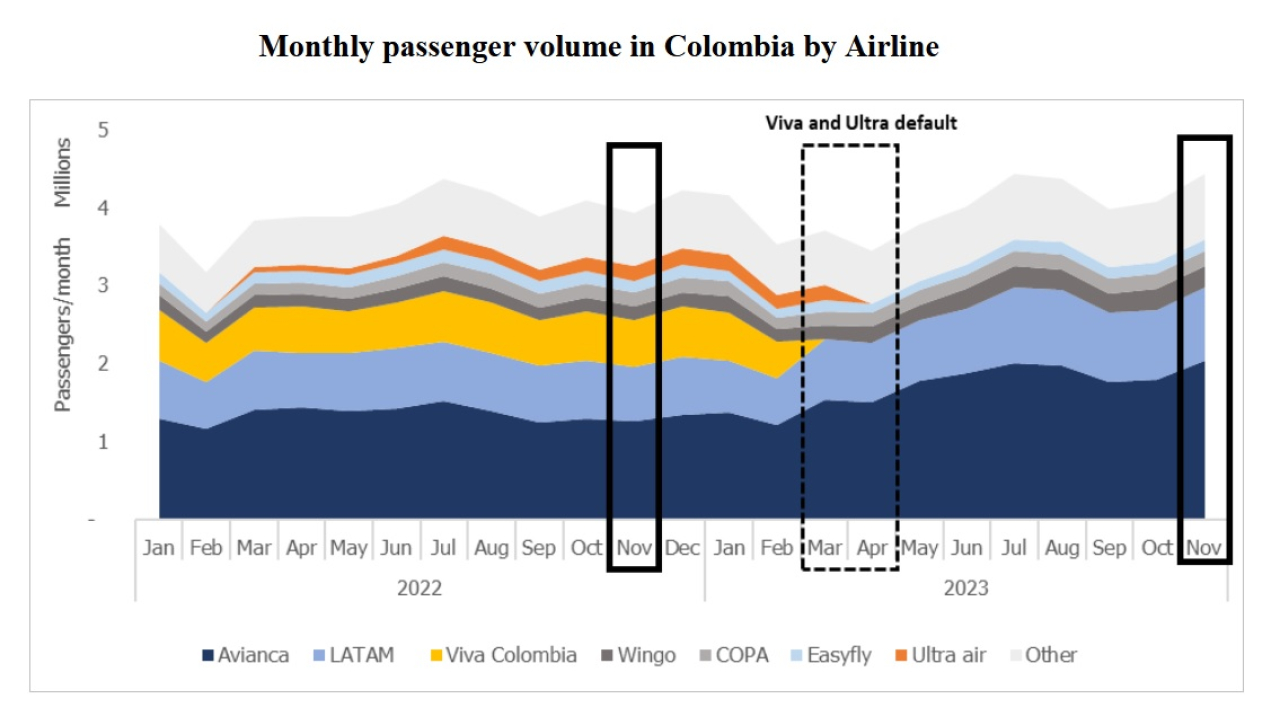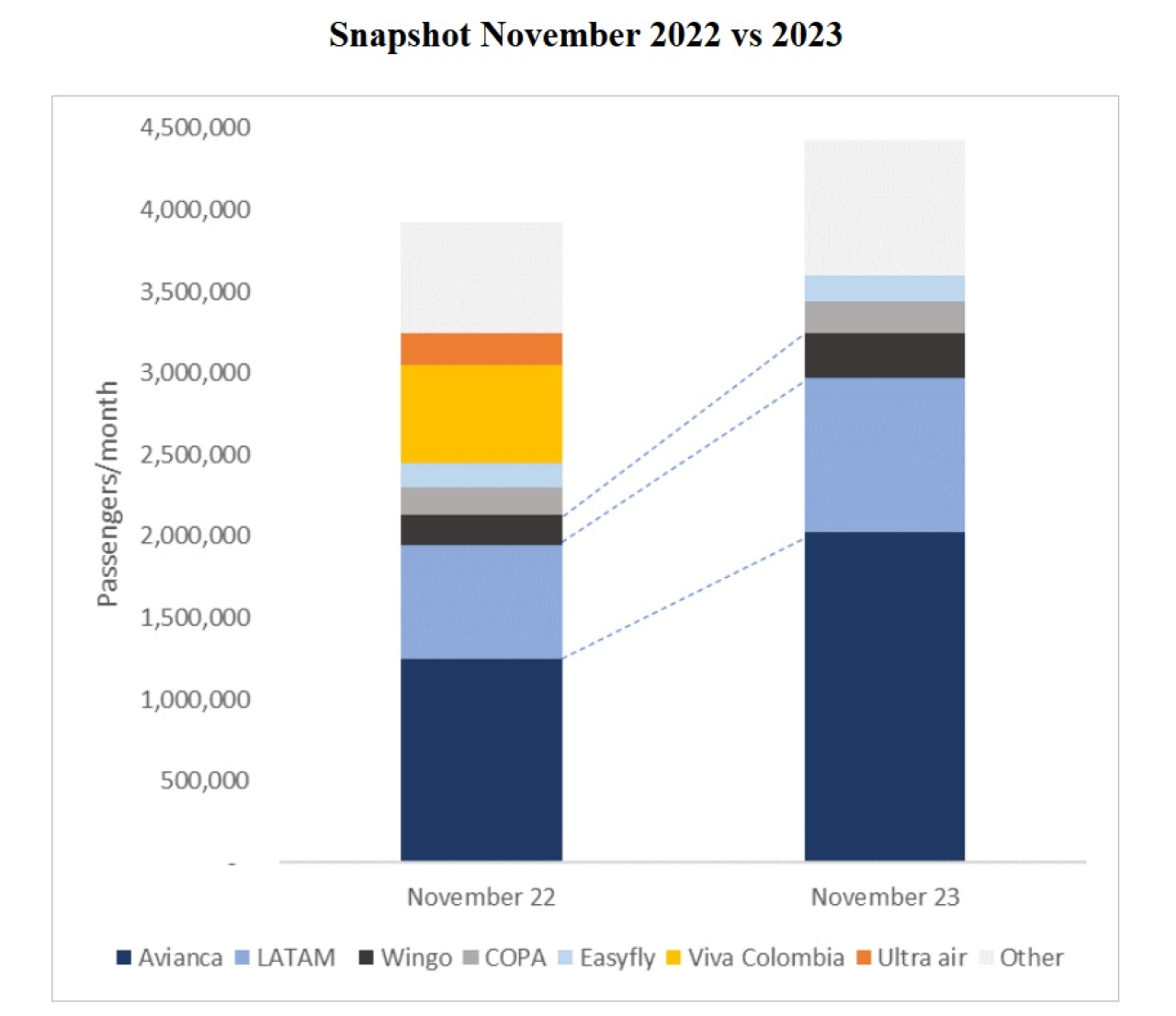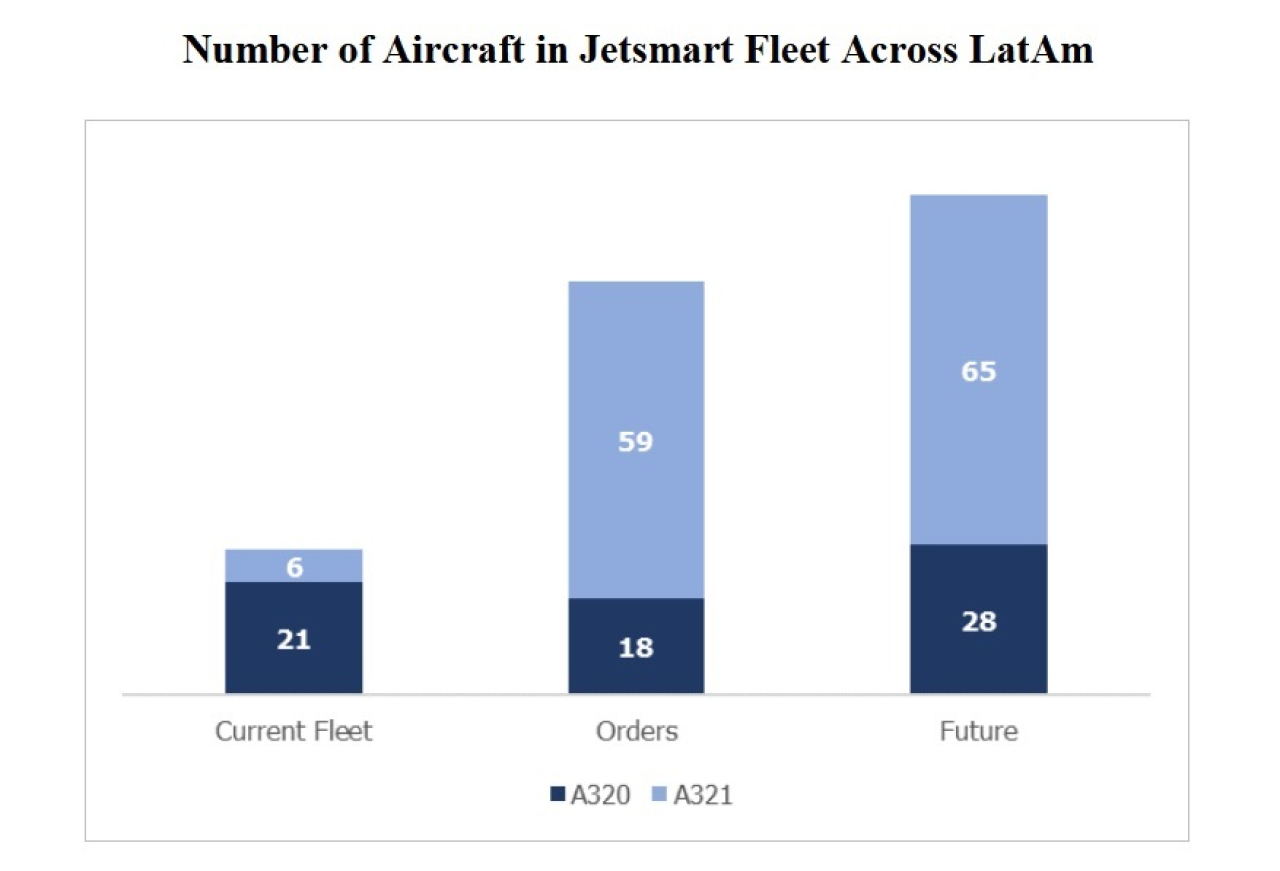Can Jetsmart Fill the Low-cost Gap Left by Viva and Ultra Air in Colombia?
Dion Zumbrink
January 10, 2024

© Jetsmart
Since the two largest low-cost airlines in Colombia, Viva and Ultra Air, defaulted in March-April last year, the country has been operating with a uniquely low share of low-cost seat capacity. The only true low-cost carrier left, Wingo, carried just 6% of passengers in October this year. This is an unfavorable situation for the consumer.
The Colombian market has proven its strong potential with the rapid recovery post-pandemic and some airports recording 30-40% traffic uplifts versus 2019. It’s not surprising then that a new entrant is already in the process of filling the low-cost gap.
Jetsmart from Chile (whose tail fins show different animals) is currently going through the certification procedure and is moving to the fourth of five phases in the process. The airline expects to be operational this March.
Colombian Snapshot
As can be seen in the chart below, when Viva and Ultra ceased operations, Avianca and Latam Airlines both increased their capacity significantly to partly cater to the demand. Avianca defaulted to a more low-cost-structured business model, offering no-frills services in its lowest price category. It also refitted its fleet to include 20% more seats.
As these refitted aircraft came into service throughout last year, they helped to increase available capacity. In addition, the airline took delivery of 27 new aircraft and it took over eight aircraft from Viva. Latam was also able to quickly ramp up capacity by adding five new aircraft to its Colombia fleet.

© Dion Zumbrink
Colombia remains resilient. Even though the failed LCCs had a combined market share of 20% in the market, passenger levels in April 2023 were only 11% below the same month in 2022.
Avianca and LATAM continued their capacity growth last summer and Wingo increased its capacity by nearly 50%, although in absolute volume this remains a minor player. Due to this combined growth, Colombian air traffic by November this year had already surpassed November 2022 by a staggering 13%, despite two fewer airlines in operation.
The majority of the market gap was filled by Avianca, which increased 62%, while LATAM increased 35%, and Wingo 52% (see chart below). International traffic has comfortably increased while the domestic market is 2% up over the same time frame after a push in November. It seems that the domestic market in particular can benefit from a new LCC.

© Dion Zumbrink
Jetsmart Entry
Jetsmart is set to fill the domestic LCC gap. The airline believes in the market potential due to the high demand for domestic travel as well as the connections to its international network that it can generate. Operations are estimated to start in March, when all certification procedures are completed, and the carrier has received additional aircraft.
So far, the airline has received approval for 27 domestic routes, the majority from Bogota, but also Medellin, and Cartagena. Jetsmart plans to enter with seven aircraft, growing to 12 in three years. This is still not close to the combined fleet of Ultra and Viva of nearly 30 aircraft, however, the airline has ambitious plans and could scale up if demand remains high.
There are still 77 deliveries outstanding, and the fleet will ultimately comprise over 90 aircraft spread over Latin America. This can be complemented with leased aircraft. In addition to Colombia and its origin Chile, the airline also has domestic bases in Peru and Argentina.

© Dion Zumbrink
The airline will therefore initially enter with around 10% market share and not completely replace the gap left by Viva and Ultra. However, with the increased capacity of Avianca and Latam, Colombia´s air traffic growth is set to continue at pace.
The no-frills basic fare from Avianca combined with the new capacity from Jetsmart will likely ensure that consumers can travel within the country at reasonable airfares and the proven demand for LCC domestic travel can be further unlocked.
